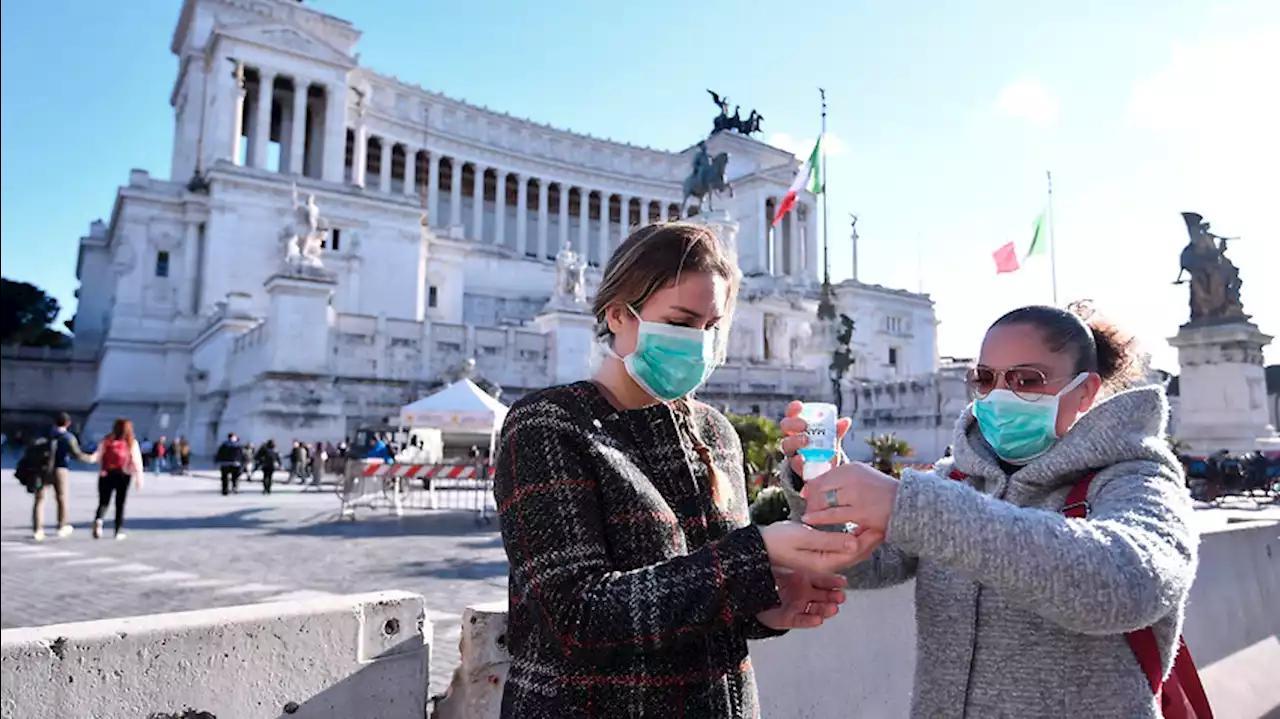ROME, March 9 (Xinhua) -- Italian authorities on Monday confirmed 7,985 coronavirus infection cases were registered in the country.
The figure marked an increase by 1,598 new cases compared to the previous day, and did not include recoveries or fatalities.
"We have registered 102 new recoveries today, which brings the total to 724," Civil Protection Department chief Angelo Borrelli, who serves as extraordinary commissioner for the coronavirus emergency, told a televised press conference in late afternoon.
"We have also had 97 new fatalities, which has brought the death toll to 463," he added.
Considering all data (including deaths and recoveries), the number of coronavirus cases assessed by health authorities was 9,172.
The official confirmed the vast majority of the fatalities occurred among elderly people.
"One percent of the deceased were aged between 50 and 59 years old, some 10 percent between 60 and 69, 31 percent between 70 and 79, another 44 percent between 80 and 89, and 14 percent were over 90," Borrelli explained.
At the same time, health authorities on Monday highlighted not only elders were at risk of infection. The communication came after several cases of young people not respecting new restricting rule in social life to contain the epidemic have been reported in recent days.
"The 22 percent of patients positive for COVID-19 are between 19 and 50 years old," Italy's National Health Institute (ISS) said in a statement.
"This is stated by an analysis of the National Health Institute, which makes it very clear that rules of social distancing must be respected by all age groups, including young people," it added.
With regard to the health conditions of the 7,985 people currently positive for the coronavirus, the Civil Protection chief specified 4,316 of them were hospitalized with symptoms, another 733 were in intensive care, and 2,936 people asymptomatic or with light symptoms were in isolation at home.
Also on Monday, the Civil Protection Department coordinating the national task force against the epidemic confirmed new equipment and materials were being sent across hospitals in the most affected regions in order to strengthen their response capacity.
"Today we have begun distributing 325 new ventilators for intensive and sub-intensive care units, starting with Lombardy," the extraordinary commissioner told the press conference.
With a total of 4,490 infection cases, the northern Lombardy region remained in fact the most affected by the epidemic, and its hospitals the most under stress.
According to the latest data provided by the Civil Protection, it was followed by Emilia Romagna (1,286 infections), Veneto (694), Piedmont (337), Marche (313), and Toscana (206).
In all of the other regions with confirmed COVID-19 cases, the number of infections remained below 100.
In addition to the medical equipment, Borrelli said some 100,000 face masks to protect personnel and inmates would be distributed across the country's prisons starting from Tuesday, in order to "allow normal activities to take place in safe conditions."
In addition, some 80 tents would be set up across the jails, serving as triage centers to test people for coronavirus.
These measures came as tension was running high in several jails across the country. Discontent swelled among inmates after the authorities on Sunday curtailed prisoner rights, including a restriction on family visits for inmates, as part of a strategy to curb the spread of coronavirus.
By mid-Monday, protests and riots were reported in 27 different jails across the country, and six people have been declared dead by jail authorities since a riot broke out on Sunday at a penitentiary in Modena.
To stem the spread of the virus, Italian Prime Minister Giuseppe Conte announced late on Monday that the containment measures will be extended to the entire country in the next hours.
"All movements will be restricted across the entire country, but for those justified by three specific reasons: provable work reason, emergency cases, and health needs," Conte told a televised press conference.
The new rules are to be included in a decree that would enter into force by Tuesday, and stay in force at least up to April 3, according to the prime minister.
